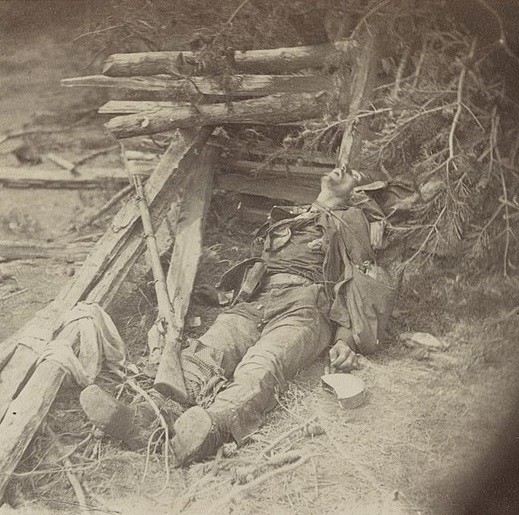
by Richard Subber | Jun 27, 2023 | Book reviews, Books, Human Nature, Joys of reading, Language
…death is an anticlimax…
Book review:
Les Liaisons Dangereuses
by Pierre-Ambroise Choderlos de Laclos
Originally published 1782
Translated as Dangerous Liaisons by Ernest Dowson, New York: Doubleday, 1998
Illustrations by Sylvain Sauvage
Les Liaisons Dangereuses is not a garden of delight.
This is a book about love, but the reader will find precious little of it in these pages.
An acquaintance dismissed this voluptuous tale, thus: “All they do is talk.”
Let’s begin there. The language is rich. I daresay that Laclos turns language into an erogenous zone in Les Liaisons Dangereuses.
If you aspire to a working understanding of good and evil, you could do worse than listen to the riveting chatter of the leading personae, who choose each word with careful, deliciously ribald, austerely cruel, and domineering intent. You really don’t want to be a friend, and you most assuredly don’t want to be an enemy.
Men, en garde! The Marquise de Merteuil impulsively thinks of cojones as table ornaments.
Ladies, away! The Vicomte de Valmont is a pirate lover, he sees women as prize ships ready for boarding.
One might wish to believe that the others are innocents: Cécile Volanges, Danceny, the Présidente de Tourvel. But, hold. Each of them seeks to play the game of love, but they are hardly able to distinguish winning from losing.
Yes, this is a boundless exposé of the worst elements—of human intrigue, self indulgence, hubris, vaunting egos, and careless poaching of souls—that masquerade as amour.
Yes, in a sense, the characters are stereotypes, but each is, remarkably, ingeniously, ingenuously, a masterpiece of the type. Laclos uses every pertinent word to make them real.
Yes, Les Liaisons is an ultimately degraded experience for both the characters and readers…ultimately, the reader must condemn the Marquise and the Vicomte for so many lives destroyed…death is an anticlimax in Liaisons Dangereuses.
The Marquise and the Vicomte are burdened with a moral framework that shuns the absolute—they have unimaginably unsatisfied desires, and no intellectual elaboration of right and wrong.
Yet, a gentle reader may offer these two a bare shred of pity.
The Marquise de Merteuil and the Vicomte de Valmont swirl through their lives, casually jousting with each other as they amuse themselves in controlling the fates of other men and women, but remaining unaware that they are not in control of their own fates.
Note for bibliophiles: Whether you read this in the original French, or in the lush translation by Ernest Dowson, accept the pain of experiencing a literary style that is no longer in vogue, prepare yourself for Laclos’ fabulous late 18th century style that discards a simple declarative sentence, readily, with apparent joy, whenever a sentence heavily laden with clauses, phrases, and modifiers will do just as well, heedless of the effect on a reader, whose inclination may be to appreciate the writhing drama of this story, with somewhat fewer words.
* * * * * *
Book review. Copyright © Richard Carl Subber 2023 All rights reserved.
Book review: The Snow Goose
…sensual drama, eminently poetic…
by Paul Gallico
–
Above all: Poems of dawn and more with 73 free verse poems,
and the rest of my poetry books are for sale on Amazon (paperback and Kindle)
and free in Kindle Unlimited, search Amazon for “Richard Carl Subber”
* * * * * *

by Richard Subber | Jun 20, 2023 | My poetry, Poetry, Reviews of other poets, Tidbits
he stares at me, no fear…
Busy
The chippie halts on the second step.
I’ve seen him there, he will not stay,
his hole is close, he will not stray,
he skips across my little yard
but not too far.
I want to ask him, just this once,
if he’d like to scout a cozy place
he’s never seen,
he stares at me, no fear,
I’d like a little chat, I think,
I’d like to hear his thoughts,
but I can see
he has no time to talk.
October 23, 2019
Inspired by Rosemerry Wahtola Trommer’s “Following Mr. Berry’s Instructions,”
published October 23, 2019, on her website, A Hundred Falling Veils
“You have to be able to imagine lives that aren’t yours.”
Wendell Berry
* * * * * *
My poetry. Copyright © Richard Carl Subber 2023 All rights reserved.
84, Charing Cross Road (book review)
Helene Hanff, on reading good books…
–
Writing Rainbows: Poems for Grown-Ups with 59 free verse and haiku poems,
and the rest of my poetry books are for sale on Amazon (paperback and Kindle)
and free in Kindle Unlimited, search Amazon for “Richard Carl Subber”
Your comments are welcome—tell me what you’re thinking.
* * * * * *

by Richard Subber | Jun 17, 2023 | History, Human Nature, Reflections, Theater and play reviews
…a perfection of evil…
Movie review:
Conspiracy
The Wannsee Conference in Hitler’s Germany, January 1942
Starring Kenneth Branagh, Stanley Tucci, Colin Firth (2001)
Here’s the short version: watching Conspiracy is like drinking molten lead.
Conspiracy is an almost flawless portrayal of naked evil being done by powerful men, each of whom has lost or abandoned his moral compass.
It is dry, withering, completely transparent, all too believable—not merely because we know it’s all true. We know that there are powerful men and women alive today who are willing to do blasphemously wrong things like killing 6 million Jews.
Conspiracy dramatizes the Wannsee Conference that first officially articulated the Final Solution for the Jews of Europe: the Holocaust.
Stanley Tucci as SS Major Adolph Eichmann, Kenneth Branagh as Hitler’s Chief of Security Reinhard Heydrich, Colin Firth as Dr. Wilhelm Stuckart (a lawyer who wrote the racist Nuremberg Laws), and 12 others show how it was probably done—almost without passion—around a long conference table in a manor house outside Berlin. One of the participants failed to destroy his copy of the minutes. This surviving document was used in the post-WWII Nuremberg Trials.
Conspiracy is frightening, horrifying, and disgusting. It is a perfection of the evil that men can do.
The antidote for watching it is simple: do a good thing every day.
* * * * * *
Movie review. Copyright © Richard Carl Subber 2023 All rights reserved.
Book review: The Comanche Empire
the other story of the American West…
–
As with another eye: Poems of exactitude with 55 free verse and haiku poems,
and the rest of my poetry books are for sale on Amazon (paperback and Kindle)
and free in Kindle Unlimited, search Amazon for “Richard Carl Subber”
* * * * * *

by Richard Subber | Jun 15, 2023 | My poetry, Poetry, Reflections
I know there’s a place…
What I know
I’ll keep moving, I know I will.
I know I can’t remember how to go back.
I’ll keep looking for the place
I want to turn to,
I know that I can go on.
I know I can’t foresee
the final bend in this road.
I’ll keep asking how to get there.
I know there’s a place
where I can be happy,
I know I’ll find it.
I know I will.
June 25, 2019
* * * * * *
My poetry. Copyright © Richard Carl Subber 2023 All rights reserved.
Book review: Shawshank Redemption
A world I do not want to know…
by Stephen King
–
Above all: Poems of dawn and more with 73 free verse poems,
and the rest of my poetry books are for sale on Amazon (paperback and Kindle)
and free in Kindle Unlimited, search Amazon for “Richard Carl Subber”
Your comments are welcome—tell me what you’re thinking.
* * * * * *

by Richard Subber | Jun 13, 2023 | American history, Books, History, Politics, Power and inequality
the men in gray went AWOL
Book review:
Bitterly Divided: The South’s Inner Civil War
by David Williams
New York: The New Press, 2008
310 pages
Wow! Bitterly Divided is a game-changing perspective on the causes and conduct of the American Civil War.
Read this compellingly researched book by David Williams to get the details.
Some highlights:
About a half million black and white Southerners served in the Union army, about 25% of the total number of men in arms wearing blue uniforms.
There was substantial opposition to secession in every state that seceded. Politicians and rich slaveholders literally corrupted the elections to make secession happen.
In the latter years of the war, at any given time as many as two-thirds of the common soldiers in the Confederate army were absent with or without leave. General Lee worried persistently about deserters.
The Confederate armed forces always had enough ammunition, but the soldiers and their wives and families at home never had enough food—because rich plantation owners insisted on planting the more profitable tobacco and cotton crops.
The Civil War was fought about slavery—because the big slaveholders refused to give up their source of free labor.
* * * * * *
Book review. Copyright © Richard Carl Subber 2023 All rights reserved.
Book review: “Bartleby, the Scrivener”
Here is loneliness beyond understanding…
by Herman Melville
–
Seeing far: Selected poems with 47 free verse and haiku poems,
and the rest of my poetry books are for sale on Amazon (paperback and Kindle)
and free in Kindle Unlimited, search Amazon for “Richard Carl Subber”
* * * * * *




